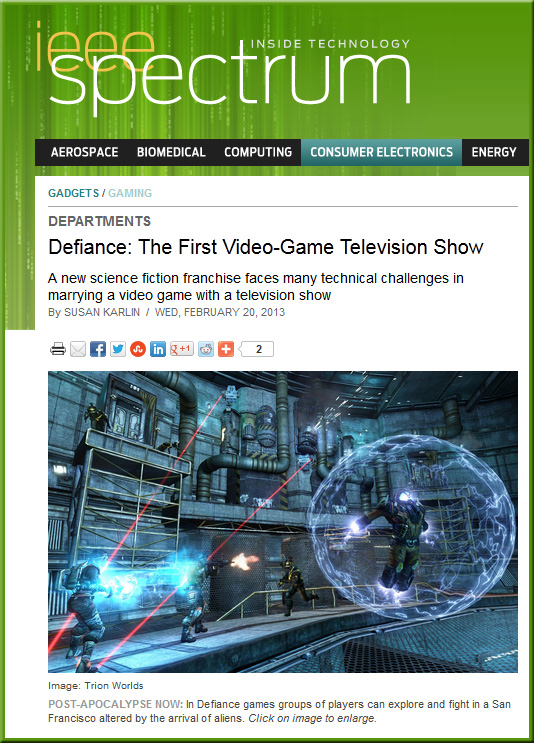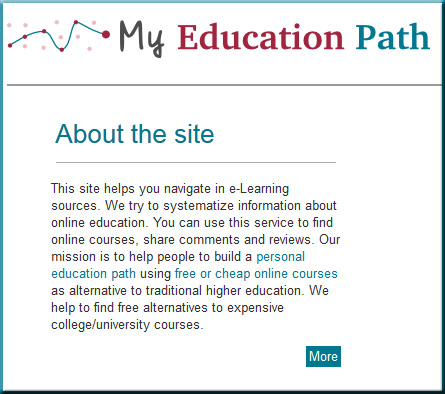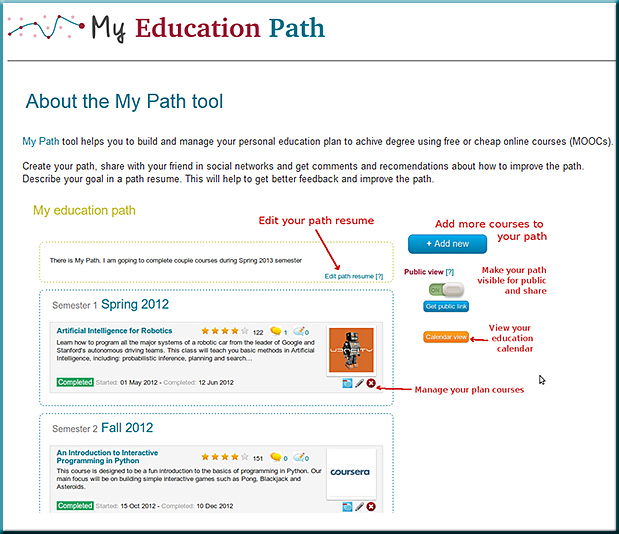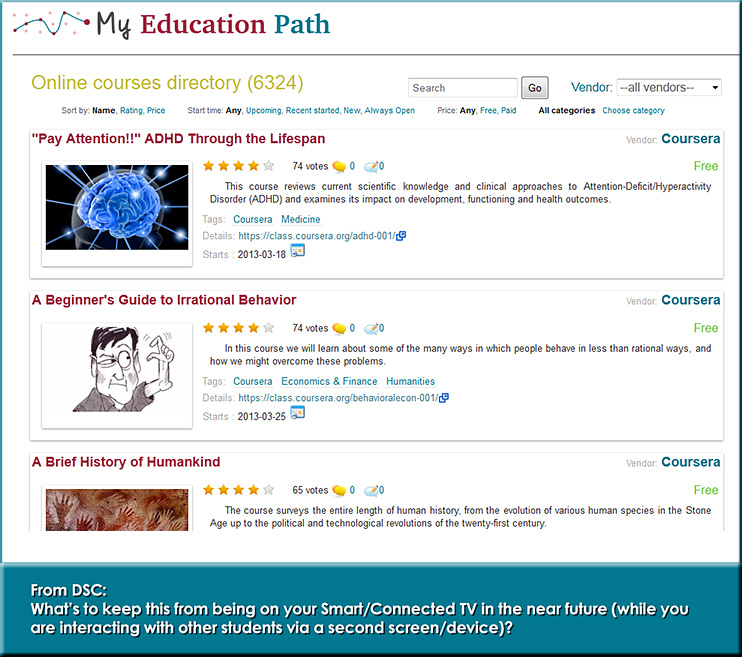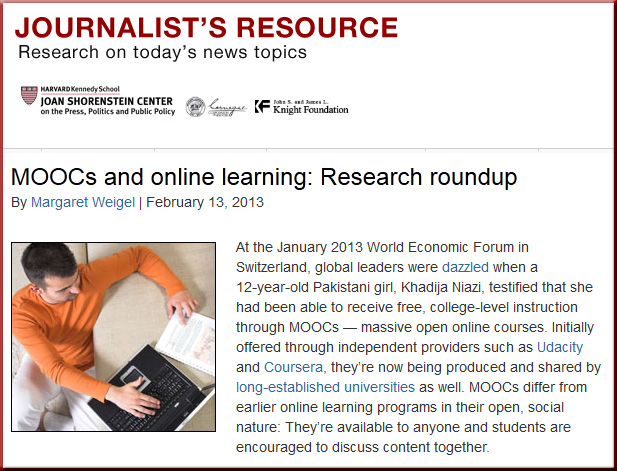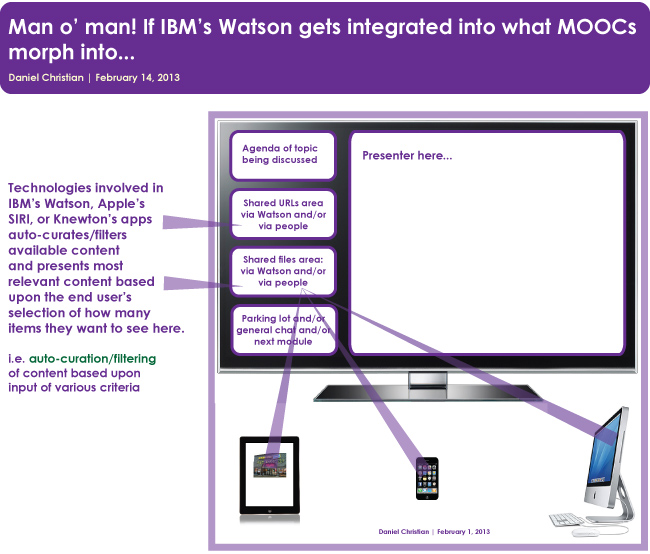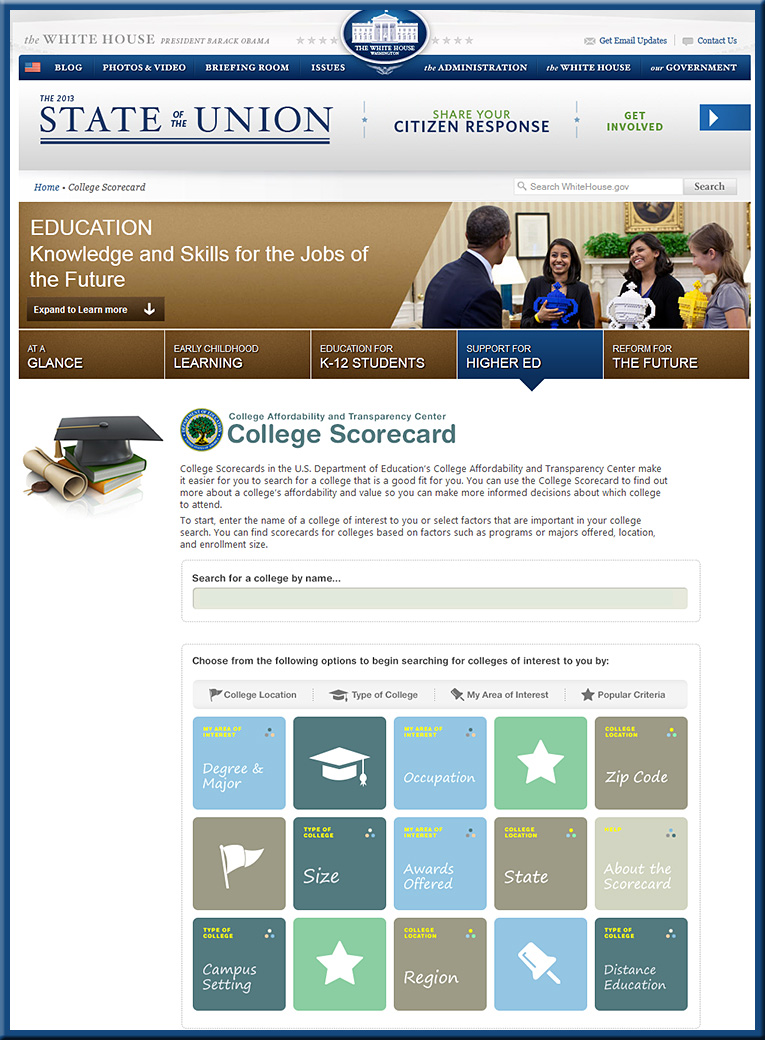MOOCs and online learning: An interview with Jack Welch — from edudemic.com by Paul Glader
Excerpt:
WA – What do you think of this trend in Massive Open Online Courses, or MOOCs? Where is it going?
JW – Tom Friedman talked about it a few weeks ago (in the New York Times). It seems a little like the stigma associated with online learning, similar to online dating sites, is washing away. Every trend is going in that direction. We can give an MBA for $30,000 and you keep your job and are moving up in a company. Contrast that with leaving a job for two years and you lose $100,000 or whatever your salary is. You pay these exorbitant MBA costs for two years – $125,000. The economics are all going in the right direction for online education. It’s just as rigorous or more rigorous because you can’t just BS the classes. Everything is going in our direction. We can offer a rigorous MBA program while we make you a better leader. The theme of our school is we teach you on Tuesday and you put it into practice on Wednesday. In other MBA programs, you learn on Tuesday and, two years later, you put it to work.
I continue to wonder if and when corporate training and development programs/departments will shift their attention to two main things:
- Helping employees build their own learning ecosystems — based upon each employee’s career goals, current/near-future positions, projects that they are working on, etc.
- Creating MOOCs — and/or what MOOCs eventually morph into — for their own companies; then selecting the cream of the crop for an interview or an immediate job offer









